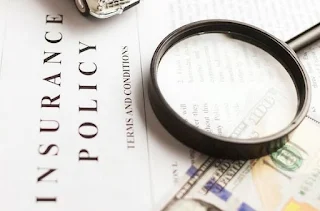Are you thinking about buying a car? Buying a car can be time consuming and stressful with so many brands and models to choose from. Whether you plan on buying a new or used car, there are many things to consider such as pricing, financing options, features, reliability ratings, and insurance costs. You can buy a car with cash, finance it with a car loan, or lease it.
Below are some tips to follow during the car buying process:
Review Your Budget
Similar to buying a home, you should have a financial plan for your new car purchase so you don’t overspend. Before you start exploring different vehicle models and test-driving cars, determine your budget and how you will pay for your car. Will you finance, lease, or pay with cash? You should plan for other expenses such as the registration fees, maintenance expenses, and cost for insurance. Make sure to include these expenses as part of your budget. When estimating your payment it is recommended that you spend no more than 10% to 15% of your take-home income for your transportation costs.
Determine the Type of Vehicle that Fits Your Lifestyle
Once you have determined how much you can spend on your car, it’s time to do some research to determine which vehicles are a good fit for your lifestyle and which vehicles have good user and reliability ratings. Make a list of your needs and wants from a car such as vehicle size, safety, convenience features, and fuel economy to determine what type of car will best fit your lifestyle and budget. Keep this list in mind when doing your research.
New or Used Car ?
Purchasing new or used vehicle is a matter of personal preference, needs, and budget. There are advantages and disadvantages with each option. Buying a private or dealer certified used vehicle that is a couple of years old will usually save you thousands of dollars off the original new selling price. Depending on where you buy your used vehicle it could be difficult to get a good picture of how well the vehicle was maintained and whether there are any reliability issues. If you intend on buying a used vehicle make sure to have it inspected by a trusted mechanic before you make your purchase. When buying a new vehicle you will have more options to purchase a vehicle that fits with your lifestyle and has all the convenience and technology features you are looking for. Most new vehicles will also offer a 3 to 5 comprehensive free repair warranty. A new vehicle will be more costly to purchase and will depreciate in value the most the first 2 years after being purchased.
Get Insurance Quotes
Once you have narrowed down your vehicle search you will have to get some insurance quotes. The model and age of your car will determine your vehicle insurance costs. Generally the newer and more costly a vehicle is, the higher the insurance costs will be. Insurance prices are usually lower for used cars and continue to drop as a car ages. If you are a homeowner you can usually get a lower insurance rate if you combine and obtain your auto and home insurance from the same insurer.
Get Pre-approved for a Loan
Obtain copy credit report and review. Request the removal of any inaccurate information on your credit report. A credit score of good or excellent will generally allow you to negotiate a better interest rate and financing terms for your loan. When borrowing for a used or new vehicle, do your research and shop around for the best rates and financing options. Get pre-approved for a car loan before you visit any car dealership. This will give you the flexibility to stay with your pre-approved loan or go with the loan the car dealership offers you if the dealership offers you better rate and financing terms. Depending on interest rates it is usually better to go with a 48 to 60 month term for your loan. Longer loan terms will have lower monthly payments but usually have a higher interest rate costing you more to finance your vehicle.
Best Time of Year To Buy a New Car
You will usually get a better deal if you purchase a vehicle at the end of the month, quarter or at year-end when car dealerships are trying to reach their monthly, quarterly and year-end sales goals. During the last quarter of the year car manufactures will normally offer excellent incentives and price reductions on previous year models to make room for the arrival of new model year vehicles.
Buying a car can sometimes be frustrating and overwhelming. It’s essential to do your research to determine which car purchase will best meet your needs and fit your lifestyle. Follow the tips in this article to get the best possible deal on you next car purchase.
Share
Follow
Recommended for you


